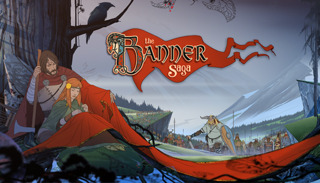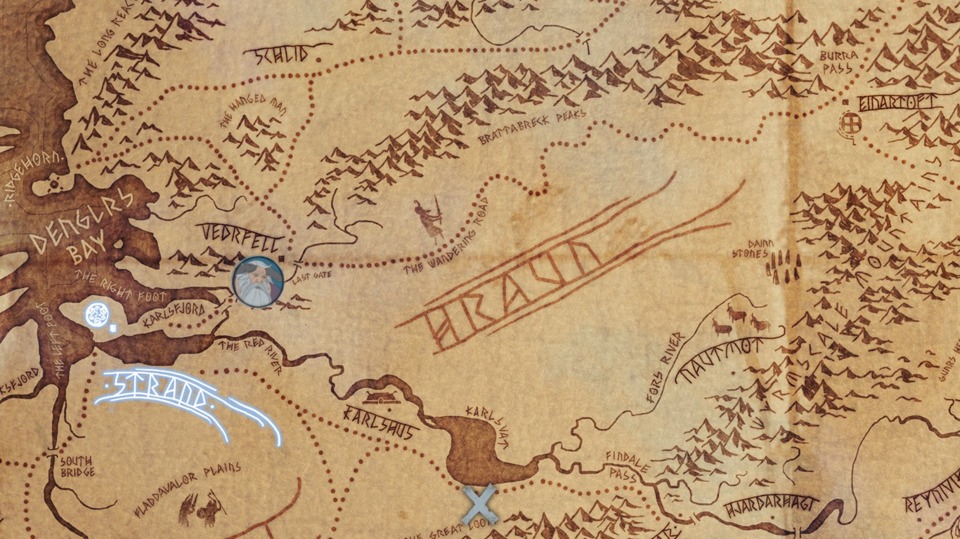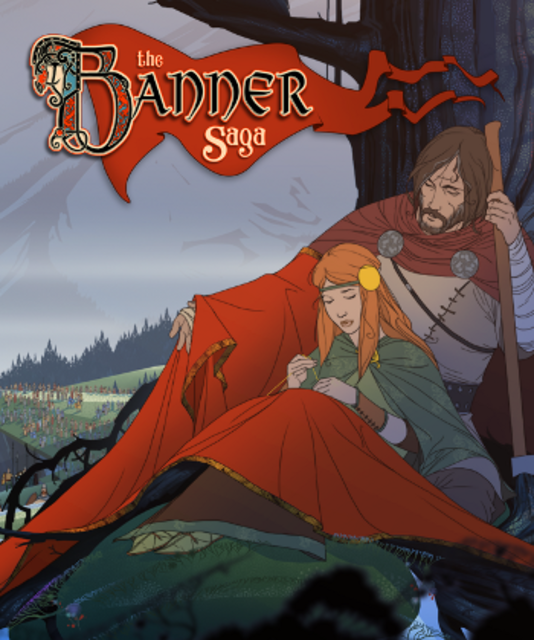The weekend's looking to be an interesting one, so hopefully I can still manage to get in an additional few hours with today's game. This one's another I intend to play for the full three days I've allotted myself for this feature, but I'm honestly completely in the dark about just how long this one might take. I'll get into that after the header, as always.
I've also been playing little bits and pieces of Castlevania: Dawn of Sorrow and Cook, Serve, Delicious!, if you were wondering about where I left those off. (I generally can't stand to let playthroughs sit half-finished, even for games I've played before. Hence why I changed the May Madness format this year, I suppose.)
- Dawn of Sorrow's been as excellent as I remember it, and I keep squirreling away an hour or so per day to beat the next boss and then backtrack/explore a bit to hunt for all the now-accessible goods with any new abilities the boss unlocked, before ending in the save room before the next boss to repeat the process on the morrow. Dawn's kind of an odd one, comparative to Aria and SOTN, in that the souls you acquire can be used to upgrade weapons. It doesn't seem as if the best weapons can be obtained by any other means so the soul farming is more important than ever while scouring the castle for hidden items is now a little less so. I did do the necessary grinding for the ludicrously expensive ring that greatly increases the soul appearance rate, so it's clear I'm as deep into this game as one could sanely get. It also means I've procured myself another Claimh Solais (which I recently discovered is actually pronounced "Cleave Sulish". Gaelic, eh?), the best sword in the game, though it wasn't easy or fun to grab the necessary upgrade souls. Sometimes, though, it's the satisfaction that matters.
- Cook, Serve, Delicious! is, as I predicted back when I covered it, a perfect game for brief visits. I usually manage one or two days per play before moving onto other stuff, and it's balanced in such a fascinating way. Every day seems to have a dozen new email notices, whether it's the standard stuff like alerts about menu rot or weather reports, to hearing that a new convenience or food upgrade is for sale. These conveniences, which have so far allowed me to cut the time it takes to do chores in half (or in some cases, halved the number of times they appear), are stopping me from expanding my menu because I always make a beeline for them first. There's now plenty of food items that have upgrades waiting to happen, yet I've been too fixated on making my life easier and stress-free to actually make strides towards becoming better at my profession. The unsettling parallels to my own life are not lost on me.
The Banner Saga

I was a little apprehensive about The Banner Saga. That's not to say I was concerned about its genre. I love strategy RPGs, especially when I don't have to worry about people dying (in battle at least, but let's just say death is not a stranger in this world), and the game has an interesting system that appears to want to emphasize the verisimilitude of actual combat by making fatigue and wear a huge factor. Every character begins semi-invincible, with high armor and strength (which, curiously, doubles as both damage output and health), which whittles away the longer the character stays in combat. As you keep fighting, you get weaker and less able to fight, and defeat comes quick if your armor or strength has been reduced to low levels. Even a powerful unit, if the target of repeat attacks, will become effectively useless as they barely hold themselves together. It's a little stressful, but it also demands a certain level of strategy that most games of this type don't generally concern themselves with: that of keeping everyone alive and relatively unscathed. Fire Emblem and its ilk will often let characters die if the player's foolish enough to leave them weakened and surrounded by enemies, but a battle can turn on you in a second if your heavy hitter takes a big chunk of strength damage and can no longer hurt a fly. It's all about sticking together and hoping for the best, which plays quite close to the game's overarching themes of survival and unity.

But yes, that apprehension. From what I heard about The Banner Saga from its QL and its numerous appearances on people's GOTY lists last year is that it's one of a number of Indie games to go fully on the tragedy side of the spectrum with its storytelling. Stories in games have always had dramatic moments, of course, but they tend to be the Hollywood kind where a hero might be brought asunder only to rise again triumphantly in the final act to save the day. More so than even those formulaic Hollywood blockbusters, games have endeavored to present happy endings and positive character arcs because the investment in the characters is so much higher when the player has this level of control over their destinies. If a character falls and dies, it's considered a fail state, a "game over", and so games really don't explore the idea too often that, sometimes, the characters we like and are rooting for and have helped along their journeys will simply die because the story demands it. I mean, just take the example of Final Fantasy VII's Aerith and the fallout from her tragic demise: she was a character that saw a lot of development and screentime, but more than that she was a playable character, and thus the players felt more than responsible for her passing. Many methods were spread across a fledgling internet describing how to bring her back to life, all of which were hacks or spurious rumors. Narrative death is a powerful dramatic force in video games, more keenly felt than it is in any other medium, and that it's taken this long for video game stories to embrace it more confidently is a little shocking.
That said... I kind of like the happy endings and positive story arcs. I'm a big old infant when it comes to that kind of comfort storytelling. I wouldn't go so far to say that I'm a depressed person (though it sure would explain a lot), but I generally shy away from anything that bums me out or sours my mood. That would include The Banner Saga, and similar Indie games that layer on the pathos and drama without necessarily being too melancholy or histrionic, such as Papers, Please or Cart Life or The Walking Dead. The Walking Dead, I feel, comes closest to how The Banner Saga frames a lot of its branching path decisions as "damned if you do, damned if you don't", and there is something really quite sinister in making the player feel every bad decision that could potentially lead to a character death or more misery on the horizon. It's the same principle behind survival horror in a way: the player is entirely responsible for moving the story along, and sometimes that means forcing yourself to head along a path that's almost certainly going to eventually terminate with something very unpleasant. Yet if you just sit there hesitantly, too afraid of what's to come to make those unavoidable steps, then the story (and the game) is never going to conclude.

This is probably coming off as me deliberately putting side a lot of the game's many other major elements for further elaboration in the next couple of rundowns, such as its fantastic Ralph Bakshi-style Nordic-inspired artwork and animation, the harrowing apocalyptic story told through various perspectives and the logistics of being responsible for an entire caravan and not just the band of warriors who take part in the various skirmishes. I'll get to all of those in due time. I just wanted to get the most significant part of the game out into the open first and move past it, because for as much as this game can be "sadness porn" (though not to the extent that Lost Odyssey was, thank the dead gods) there's some clever rules about the unique benefits of video game storytelling getting established with The Banner Saga and those like it. I'd be remiss not to focus on that first.

Log in to comment